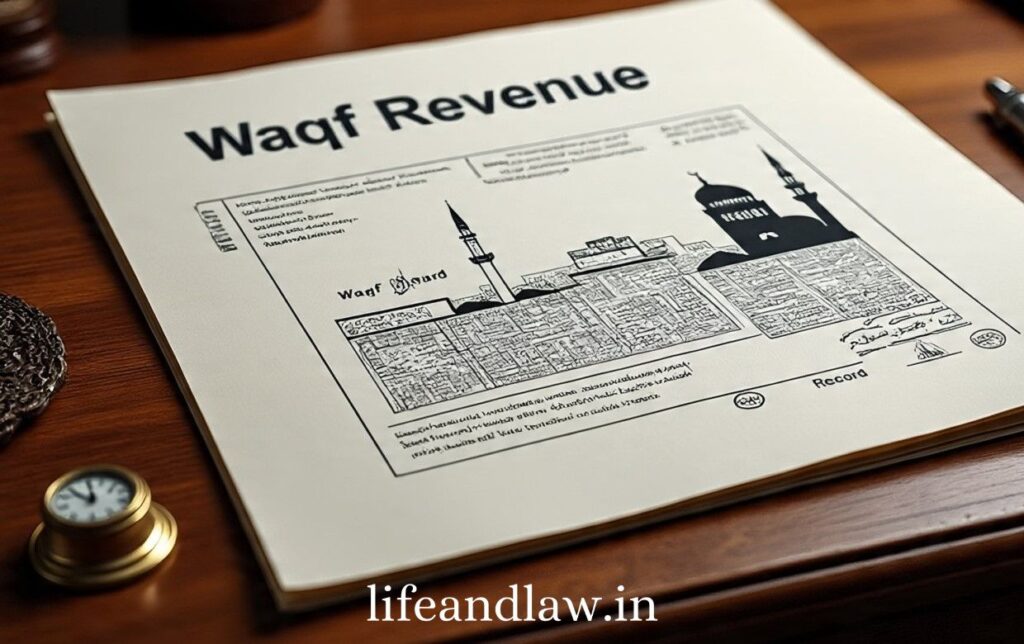Trending

The Maharashtra Waqf Rules, 2022, demand correct registration of Waqf properties in revenue papers such as the 7/12 extract and mutation records, with District Collectors expected to update entries according to Waqf Board directives. This provides legal protection and prohibits unlawful transfers. Key documents serve as confirmation of Waqf ownership, and collaboration among government agencies is critical for effective management.
The article’s purpose is to create awareness regarding the legal and procedural safeguards for Waqf properties under these guidelines.
The Maharashtra Waqf Rules, 2022 (Chapter 5, Rules 7 and 8) state that after the government publishes a list of Waqf assets, tax officers shall update land records within six months to include these properties, identifying the Waqf institution as the owner with limited powers. New Waqf properties must also be declared and recorded accurately.
To update records, the Mutawalli or CEO must contact the appropriate officers (Tahsildar for agricultural land, municipal or land officers for other properties), who will check and amend the information. Unauthorized entries must be erased, and the Waqf institution’s name should be recorded as the rightful holder.
These procedures assure the official registration, protection, and correct management of Waqf properties by coordinating with revenue officials and the Waqf Board.
Land records and revenue records are critical in maintaining the legal rights of Waqf property and getting official recognition for its management. These documents affirm the property’s legal existence and help to prevent unlawful transfers or illegal possession. When Waqf property is clearly identified in income records, no private individual or entity may lay an illegitimate claim to it. Therefore, understanding the land records required for administering waqf properties is vital.
A land record is a legal document that contains information regarding the ownership, rights, and use of any land. These records are mostly kept by the Revenue Department, Tahsil Office, and District Collector’s Office. In the case of Waqf properties, the Waqf Board must constantly check and update these records. If land records are not properly preserved, unlawful interference or illegal property transfers may occur. As a result, the Waqf Board must regularly review the property’s status in income records and make any required modifications.
The 7/12 extract is an important income document that demonstrates legal title and property use. To prevent registering under private names, Waqf properties must expressly declare “Waqf Property” or “Auqaf”. Regular verification and updates by the Waqf Board are required.
Mutation entries document ownership changes in revenue data.(grammar) After declaring a property as Waqf, the Waqf Board’s or Mutawalli’s name must be entered with revenue officer permission. Regular revisions are required to avoid illegal claims.
These records and tax receipts, which are kept by local municipalities, serve as proof of possession. Some Waqf properties, such as mosques, are tax exempt and require exemption certificates. Regular tax payments help to establish legal rights.
Official revenue records that include “Waqf Property” protect property under Waqf Board authority and prevent misuse. If the property is absent, the Waqf Board must apply for its appropriate recording.
These formal directives or notices legally recognize Waqf properties and give the Board administration rights. Gazette publications help to avoid future legal problems.
To ensure the legal protection of Waqf property, revenue records must be kept up to date. These records make it easier to establish ownership rights and prevent the unlawful selling of Waqf properties. According to revenue records, third parties cannot claim ownership of Waqf property. This assures that the property is managed and protected under the direct supervision of the Waqf Board. Unauthorized possession and unlawful sales can be prevented by keeping income records. To maintain Waqf property records up to current, the Waqf Board and Mutawalli must work closely with the revenue department on a regular basis.
Adv. Abdul Mulla emphasizes the importance of competent management and timely updates to revenue records in maintaining Waqf properties. Transparent and accurate oversight by Waqf Boards and authorities avoids fraudulent claims and ensures that these properties are used correctly for religious and social welfare reasons.
He emphasizes the importance of government-Waqf Board coordination in digitizing records, improving transparency, and more effectively enforcing laws. Increased accountability and attentiveness in Waqf asset management will simplify legal processes while also strengthening the properties’ long-term protection and utilization. For further information, go to www.asmlegalservices and www.lifeandlaw.in.
Adv. Abdul Mulla (Mob. No. 937 007 2022) is a seasoned legal professional with over 18 years of experience in advocacy, specializing in diverse areas of law, including Real Estate and Property Law, Matrimonial and Divorce Matters, Litigation and Dispute Resolution, and Will and Succession Planning. read more….
Copyright BlazeThemes. 2025